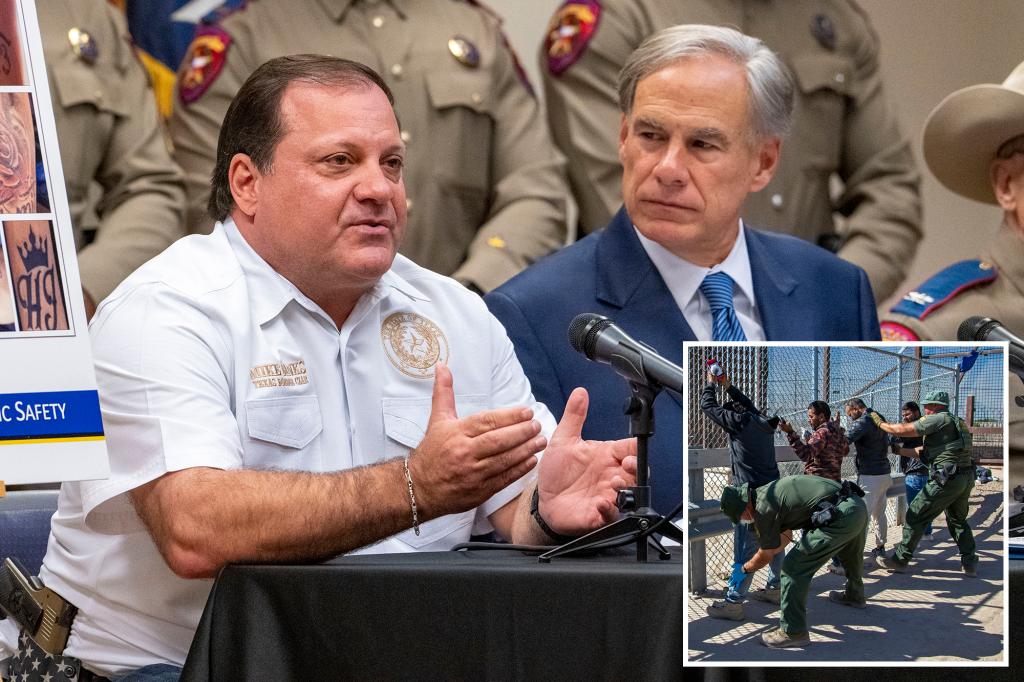The Appointment of Mike Banks as US Border Patrol Chief
Mike Banks, Texas’s inaugural border czar, has been selected to lead the US Border Patrol, marking a significant development in the ongoing efforts to address the challenges at the US-Mexico border. Banks’s appointment as the 27th chief of the agency comes after a period of unprecedented migrant flows, placing him at the forefront of a complex and politically charged issue. His background as a former border agent and his recent experience as Texas’s border czar provide him with a unique perspective on the operational and policy aspects of border security. This appointment signals a potential shift in federal border enforcement strategies, potentially incorporating some of the approaches adopted by Texas under Governor Greg Abbott.
Banks’s tenure as Texas’s border czar was marked by a focus on deterring illegal immigration. Upon assuming the role, he declared his primary objective to make Texas the "least desirable place for illegal immigration to cross." This goal reflects the broader strategy employed by Governor Abbott, who has implemented various measures, including the deployment of National Guard troops, the construction of physical barriers, and the controversial Operation Lone Star, which has faced criticism over its treatment of migrants. Banks’s leadership in this context suggests that his approach as Border Patrol chief may prioritize similar deterrence tactics. His appointment also raises questions about the potential for greater collaboration or friction between the federal government and border states like Texas, which have often pursued independent border security initiatives.
Replacing Jason Owens, Banks inherits an agency facing immense pressure to manage the high volume of migrant arrivals while simultaneously addressing concerns about humane treatment and due process. The Border Patrol has been criticized for its handling of migrant families, its enforcement practices, and its capacity to process asylum claims efficiently. Banks’s challenge will be to navigate these competing demands, balancing the need for effective border security with the legal and humanitarian obligations towards migrants. His experience in Texas, which has been at the epicenter of the border crisis, will likely inform his decision-making and approach to managing the agency.
Banks’s appointment could signify a shift in federal border policy, potentially towards adopting some of the more assertive tactics employed by Texas. While it remains to be seen how his leadership will translate into specific policy changes, it’s reasonable to expect a continued emphasis on deterrence and potentially a closer alignment between federal and state border enforcement efforts. This could include increased collaboration on border infrastructure projects, information sharing, and joint operations targeting illegal crossings. However, potential conflicts could arise if the federal government’s approach diverges from Texas’s more hardline stance.
The selection of Banks as Border Patrol chief is likely to elicit varied reactions from different stakeholders. Supporters of stricter border controls may view his appointment as a positive step, anticipating a more robust approach to enforcement. Conversely, migrant advocacy groups and human rights organizations may express concerns, given Texas’s controversial border policies under Governor Abbott. Banks’s previous role raises questions about his potential bias towards stricter enforcement and the extent to which he will prioritize humanitarian considerations in his new role. The coming months will be crucial in observing how his leadership unfolds and the impact it has on border policy and migrant experiences.
Ultimately, Banks’s success as Border Patrol chief will depend on his ability to address the complex and multifaceted challenges at the border. This will require balancing the need for effective border security with the imperative to treat migrants humanely and respect their legal rights. His experience in Texas will undoubtedly inform his approach, but he will also need to navigate the complexities of federal immigration law and policy, and engage with a diverse range of stakeholders to develop effective solutions. His leadership will be closely scrutinized, and his actions will have a significant impact on the lives of migrants and the future of border security in the United States.










